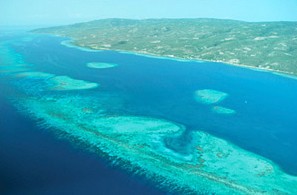Welcome to the first issue of Global Waters, a newsletter dedicated to the broad portfolio of water-related activities of the United States Agency for International Development (USAID). Water in its many forms – fresh, brackish, or marine – is central to the success of sustainable development. All life depends on freshwater and there is simply no substitute for it. Yet for many countries, including a growing number in the developing world, water is becoming increasingly scarce. As populations continue to grow and along with them hopes and expectations for improved well-being and affluence, the demand for freshwater is seemingly without bound. During the past century, global population tripled while demand for freshwater grew six-fold, and that demand is now doubling every 20 years.

Water resource managers have an exceedingly difficult challenge. They are responsible for providing adequate supplies of good quality water for multiple uses and sectors, while managing the inevitable conflict that comes about when one sector or one part of a country is not allocated all that it wishes to have. Drinking water and sanitation for people, agriculture, energy, and industry all compete for the same limited supply of water. Often forgotten or neglected is the fact that ecosystems – the ultimate source for sustainable flows of good quality water – are dependent on freshwater, too, for their continued health and production of myriad goods and services.
To meet all of these needs (and more) requires societal vision and consensus on the allocation of available water across all sectors and the environment. And it requires national policy that is based on sound science and understanding of both today’s and tomorrow’s picture of supply and demand. But the practice of water resources management is no longer simply about the science and technical aspects of water service delivery.
Rather, it is about engaging with the people of a place to become committed stewards of this most precious of all natural resources. This is the business of integrated water resources management (IWRM).
The challenges of IWRM are indeed many. Some 900 million people lack access to an improved source of drinking water, and three times that number lack access to sanitation. Agriculture consumes on average 80-90% of all freshwater in the developing world, yet growing demand for food will require new sources of water and/or greater efficiency and productivity in the water already used. Energy security for a growing number of countries will mean even more emphasis on hydropower, biofuels, and cooling, with implications for ecosystems and the natural functioning of river basins. These challenges (and many more) must be tackled with increasing urgency in the face of climate change, for water is the primary medium through which climate change impacts will be first felt by hundreds of millions of people in the developing world. The stakes are indeed very high.
Our objective is to share with readers the many challenges and opportunities, approaches, and lessons learned that reflect upon USAID programming decisions as we continually evolve to meet the needs of this multi-dimensional and dynamic sector. We hope you enjoy Global Waters and welcome your comments, ideas, and suggestions!
~ The USAID Water Team
Please send your comments & suggestions to: waterteam@usaid.gov







Comment
Make a general inquiry or suggest an improvement.